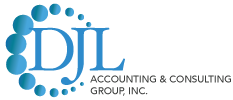The Ultimate Guide to Tax Season Preparation
Tax season doesn’t have to be overwhelming. With a little preparation and the right guidance, you can tackle it confidently and even uncover opportunities to save money.
This guide will walk you through everything you need to know to prepare effectively and file your taxes with ease.
1. Get Your Documents in Order
Before you can file your taxes, you’ll need to gather all the necessary documents. Having these ready ahead of time will save you from headaches and help ensure nothing is overlooked. Here’s what to organize:
- Personal Information: Make sure you have an updated driver’s license, updated banking information, current contact info, and your Social Security numbers (or Taxpayer Identification Numbers) for yourself, your spouse, and any dependents.
- Income Documentation: Collect all W-2 forms from employers and 1099 forms for freelance or contract work. If you received unemployment benefits, rental income, or dividends from investments, gather statements for those as well.
- Deduction and Credit Records: Save receipts for deductible expenses such as charitable contributions, education costs, and childcare expenses. If you’re a homeowner, include mortgage interest and property tax statements.
- Retirement and Savings Account Info: If you made contributions to an IRA, 401(k), or HSA, gather records showing how much you contributed.
- Health Insurance Documentation: If you purchased health insurance through the marketplace, you’ll need Form 1095-A to file your taxes.
Organizing these documents now helps ensure your tax filing process goes smoothly and avoids missing out on deductions or credits.
2. Important Deadlines to Keep in Mind
Tax season is filled with critical dates. Missing one could result in penalties or delays in receiving your refund. Here are some key deadlines:
- January 27, 2025: Tax season officially begins. The IRS starts accepting returns, and early filing can help you avoid processing delays.
- April 15, 2025: This is the deadline to file federal and state tax returns, as well as to pay any taxes owed. If you need more time, you can file for an extension, but keep in mind that any taxes owed are still due by this date.
- Quarterly Estimated Taxes: If you’re self-employed or receive income not subject to withholding, the next estimated tax payment is also due on April 15, 2025.
Marking these deadlines on your calendar will ensure you stay on track.
3. Watch Out for Tax Scams
Tax season is also often scam season. Fraudsters often target taxpayers with phishing schemes or false promises of larger refunds. Here’s how to protect yourself:
- Be Skeptical of Unsolicited Communications: The IRS will never email, text, or call you to demand personal information or payment. Any such contact is likely a scam.
- File Early: Filing your taxes as soon as possible reduces the chance of getting caught up in a scam or someone filing a fraudulent return in your name.
- Safeguard Your Information: Store sensitive documents securely and only share them with trusted tax professionals. Use secure, encrypted methods to send any information electronically.
Being cautious will help you protect your personal and financial information from fraudsters.
4. Tax Law Updates You Should Know About
Tax laws can change every year, and understanding the latest updates can help you maximize your return. Here are the key changes for this tax season:
- Income Tax Brackets: Tax brackets have been adjusted slightly to account for inflation. This means your overall tax rate may be affected depending on your income.
- Standard Deduction: The standard deduction has increased, allowing more of your income to remain tax-free.
- Itemized Deductions: While most itemized deductions remain unchanged, it’s worth reviewing your expenses to see if itemizing could save you more than taking the standard deduction.
- Retirement Contributions: Contribution limits for IRAs and 401(k)s have increased, allowing you to save more for retirement while reducing your taxable income.
- Health Savings Accounts (HSA): The contribution limits for HSAs have gone up, offering an opportunity to save for medical expenses while lowering your tax liability.
- Child Tax Credit: Enhanced Child Tax Credit amounts may provide families with a larger tax break this year.
- Alternative Minimum Tax (AMT): The AMT exemption amount has risen, which could mean fewer taxpayers are affected by this additional tax.
- Estate Tax Exemption: The estate tax exemption has increased, benefiting larger estates by reducing the likelihood of taxation.
It’s important to be aware of these changes as they can have a significant impact on your overall tax liability and refund.
5. Work with a Tax Professional
Navigating tax season can be complex, especially when tax laws are always evolving. The best way to ensure accuracy, take advantage of all eligible deductions, and maximize your refund is to work with an experienced tax professional.
At DJL Accounting & Consulting Group, we have over three decades of combined experience helping individuals and businesses successfully navigate tax season.
Start Early!
Tax season doesn’t have to be stressful. By starting early, staying organized, and working with a trusted tax professional, you can breeze through it with confidence.
Ready to get started? Contact DJL Accounting today to schedule a meeting.
Let us handle the complexities while you focus on what matters most: building your wealth and securing your financial future.
- Debra Rodway's blog
- Log in to post comments



